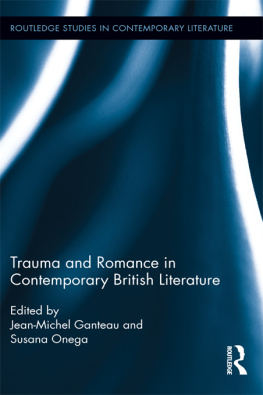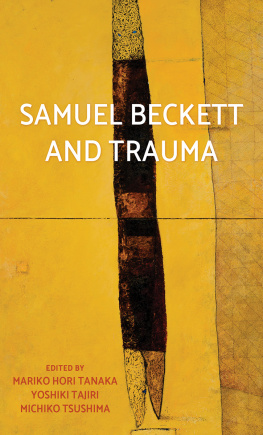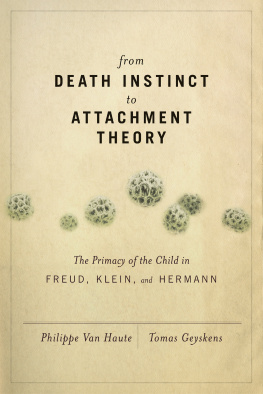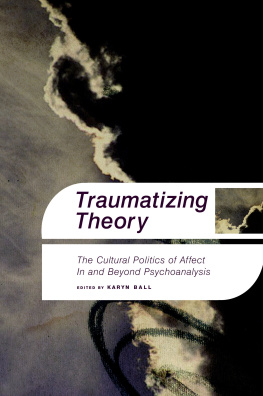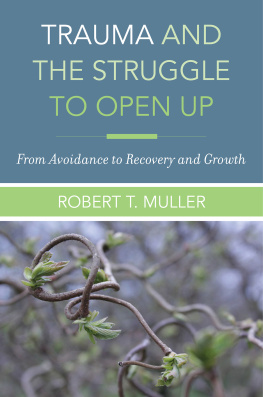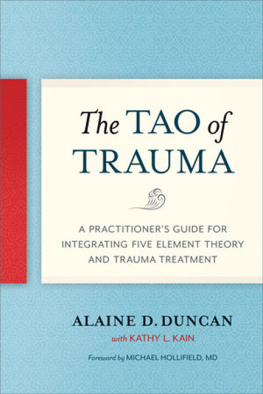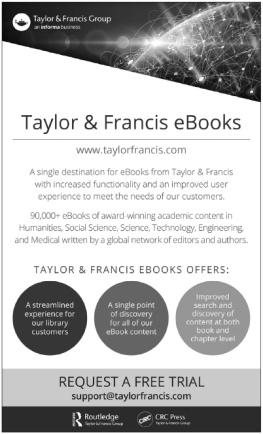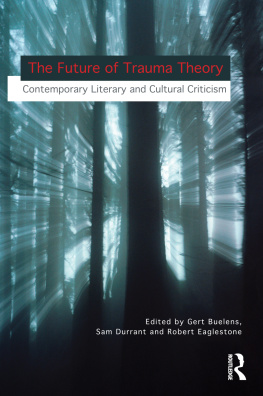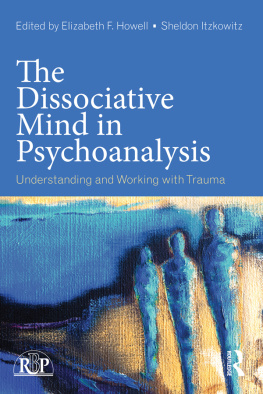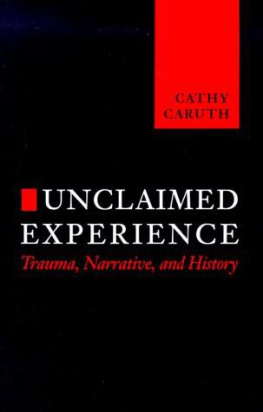
Trauma and Romance in Contemporary British Literature
Drawing on a variety of theoretical approaches including trauma theory, psychoanalysis, genre theory, narrative theory, theories of temporality, cultural theory, and ethics, this book breaks new ground in bringing together trauma and romance, two categories whose collaboration has never been addressed in such a systematic and in-depth way. The volume shows how romance strategies have become an essential component of trauma fiction in general and traumatic realism in particular. It brings to the fore the deconstructive powers of the darker type of romance and its adequacy to perform traumatic acting out and fragmentation. It also zooms in on the variations on the ghost story as medium for the evocation of trans-generational trauma, as well as on the therapeutic drive of romance that favors a narrative presentation of the working-through phase of trauma. Chapters explore various acceptations and extensions of psychic trauma, from the individual to the cultural, analyzing narrative texts that belong in various genres from the ghost story to the misery memoir to the graphic novel. The selection of primary sources allows for a review of leading contemporary British authors such as Peter Ackroyd, Martin Amis, Ian McEwan, Salman Rushdie, Graham Swift, Sarah Waters and Jeanette Winterson, and less canonical ones such as Jackie Kay, Alan Moore and Dave Gibbons, Justine Picardie, Peter Roche and Adam Thorpe.
Susana Onega is Professor of English Literature at the University of Zaragoza, Spain.
Jean-Michel Ganteau is Professor of Contemporary British Literature at the Universit Paul Valry-Montpellier 3, France
Routledge Studies in Contemporary Literature
1 Literature After 9/11
Edited by Ann Keniston and Jeanne Follansbee Quinn
2 Reading Chuck Palahniuk
American Monsters and Literary Mayhem
Edited by Cynthia Kuhn and Lance Rubin
3 Beyond Cyberpunk
New Critical Perspectives
Edited by Graham J. Murphy and Sherryl Vint
4 Criticism, Crisis, and Contemporary Narrative
Textual Horizons in an Age of Global Risk
Edited by Paul Crosthwaite
5 Food and Culture in Contemporary American Fiction
Lorna Piatti-Farnell
6 Intertextual and Interdisciplinary Approaches to Cormac McCarthy
Borders and Crossing
Edited by Nicholas Monk with a Foreword by Rick Wallach
7 Global Issues in Contemporary Hispanic Womens Writing
Shaping Gender, the Environment, and Politics
Edited by Estrella Cibreiro and Francisca Lpez
8 Trauma and Romance in Contemporary British Literature
Edited by Jean-Michel Ganteau and Susana Onega
Trauma and Romance in Contemporary British Literature
Edited by Jean-Michel Ganteau and Susana Onega

First published 2013
by Routledge
711 Third Avenue, New York, NY 10017
Simultaneously published in the UK
by Routledge
2 Park Square, Milton Park, Abingdon, Oxon OX14 4RN
Routledge is an imprint of the Taylor & Francis Group, an informa business
2013 Taylor & Francis
The right of Jean-Michel Ganteau and Susana Onega to be identified as the authors of the editorial material, and of the authors for their individual chapters, has been asserted in accordance with sections 77 and 78 of the Copyright, Designs and Patents Act 1988.
All rights reserved. No part of this book may be reprinted or reproduced or utilised in any form or by any electronic, mechanical, or other means, now known or hereafter invented, including photocopying and recording, or in any information storage or retrieval system, without permission in writing from the publishers.
Trademark Notice: Product or corporate names may be trademarks or registered trademarks, and are used only for identification and explanation without intent to infringe.
Library of Congress Cataloging-in-Publication Data
Trauma and romance in contemporary British literature / edited by Jean-Michel Ganteau and Susana Onega.
p. cm. (Routledge studies in contemporary literature ; 8)
Includes bibliographical references and index.
1. English fiction21st centuryHistory and criticism. 2. Wounds and injuries in literature. 3. Psychic trauma in literature. I. Ganteau, Jean-Michel. II. Onega Jan, Susana.
PR756.W69T73 2012
823.009'3561dc23
2012032846
ISBN13: 978-0-415-66107-2 (hbk)
ISBN13: 978-0-203-07376-6 (ebk)
Typeset in Sabon
by IBT Global.
Contents
PART I
Ghost Stories, Repetition and the Transmission of Trauma
PART II
Narratives of Distress and Individual Trauma
PART III
Collective Trauma, History and Ethics
PART IV
Therapeutic Romance
Acknowledgements
The idea for this book originated in two academic events: the Trauma and Ethics in Contemporary British Literature seminar that was convened by the editors of the present volume during the ESSE 2008 conference in Aarhus (Denmark); and the Between the Need to Know and the Urge to Deny conference that was held at the University of Zaragoza in March 2009. Those are the two main events that triggered off the idea of devoting a seminar and a volume of collected essays to the collaboration of trauma and romance in contemporary British fiction. Both events were concerned with ethics, a dimension that seeps into most of the articles in the present collection, the alliance between trauma and ethics being fairly well documented in contemporary criticism and theory.
The co-authorship of the Introduction and the co-editing of the book by Jean-Michel Ganteau are part of a project funded by the French Ministry of Education through the laboratory to which he belongs (EMMA-EA 741). The co-authorship of the Introduction and the co-editing of the book by Susana Onega belong in a research project funded by the Spanish Ministry of Science and Innovation (MICINN) and the European Regional Development Fund (ERDF) (code HUM2007-60135). She also wishes to acknowledge the support of the Government of Aragn and the European Social Fund (ESF) (code H05) for the development of this project.
We would like to thank the editors of the online Journal of Popular Romance Studies for their kind permission to reproduce part of Lynne Pearces article on repetition in Sarah Waterss The Night Watch.
Introduction
Traumatic Realism and Romance in Contemporary British Narrative
Susana Onega and Jean-Michel Ganteau
Over the last two decades, a great deal of attention has been devoted to the literary representation of trauma and, more particularly, to the ethics of trauma (see Ganteau and Onega). On both sides of the Atlantic, following on the pioneering work of critics like Cathy Caruth, Geoffrey H. Hartman and Shoshana Felman and Dori Laub, a spate of critical studies have contributed to drawing attention to the perplexed relations between trauma and literature. As indicated in the bibliography on which this introduction is based, Dominick LaCapra and Michael Rothberg in the USA, Anne Whitehead and Roger Luckhurst in Britain, Stef Craps and Marc Amfreville in continental Europe among many others have not only helped discover, contextualise and define trauma studies from a literary perspective, but have also managed to hone out theoretical and critical tools that any new discussion of the poetics and ethic of trauma cannot but take into account. Such emphasis on the literary paradigm of trauma is not fortuitous, needless to say. It is symptomatic of a generalised attempt to narrativise, and so work through, collective traumas often correlated with moments of historical crisis (in our age, the two world wars, the Holocaust, the horrors of colonisation and its aftermath, the spectre of terrorism, among others), as well as the less overt, though equally damaging individual and structural traumas associated with patriarchal ideology, unmitigated capitalism and globalisation (from the punctual traumas produced, for example, by abuse or harassment to the endemic violence directed against sexual, racial and socio-cultural minorities as a whole). Such narratives may choose realism as a means of conveying the experience of trauma in the seemingly transparent terms of fictional testimony. Thus, for example, Pat Barkers war novels privilege a realism of the gritty type to evoke life in the trenches or in the military hospitals where WWI shell-shocked soldiers used to undergo treatment at the hands of the first generation of psychiatrists. In this case, why bring in romance at all, a medium cut out to express paroxystic affect and evoke extreme situations, and being so generally opposed to realism, most often in terms of one-to-one confrontation? One reason is that trauma fiction and traumatic realism seem to evince a formal affinity with the poetics of romance, as shown in the selfsame novels by Pat Barker, where romance seems to be solicited whenever realism fails to evoke limit-case situations. From a methodological point of view, another reason is that, as literary scholars, the authors in this collection set great store by working with concepts or categories imported from the field of philosophy (ethics), and psychoanalysis (trauma), while resolutely striving to till the field of literary criticism. Still, the main reason is the need to establish a crucial collaboration between traumatic realism and romance in contemporary trauma fictions which has been generally neglected so far, the pages that Lynne Pearce devotes to the trauma of love and romance writing being a glaring exception (Pearce 2007, 1719). Furthermore, the scanty, though by no means negligible critical literature devoted to romance has tended to develop approaches that do not take into consideration its ethical and deconstructive powers. It is our contention that this has contributed to the critical neglect of the similarities of the effects and functions of romance and trauma fiction.
Next page
